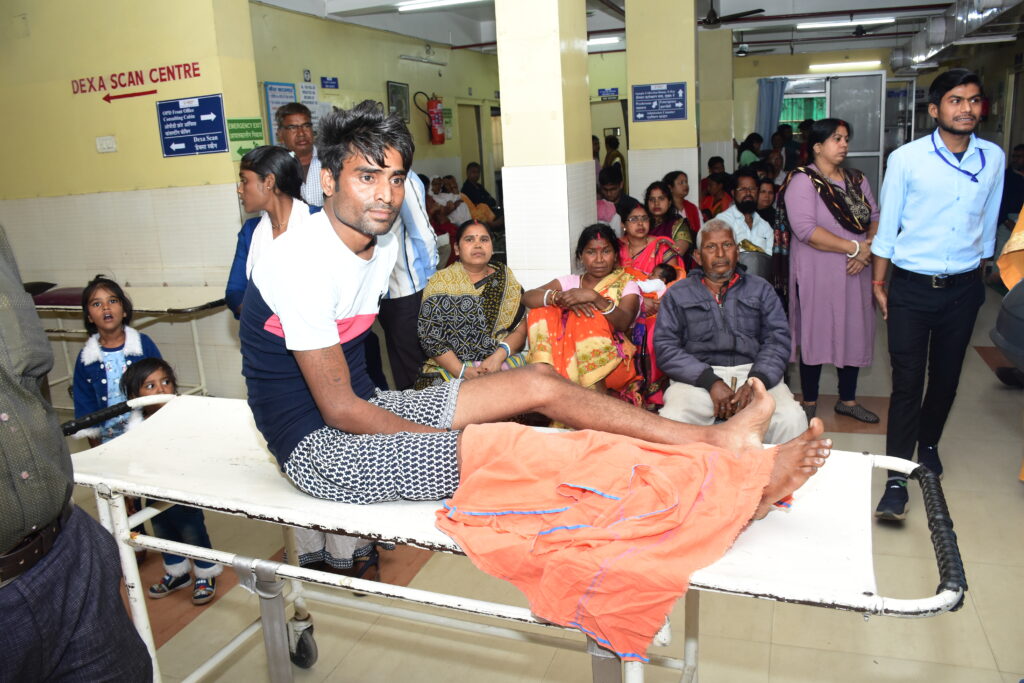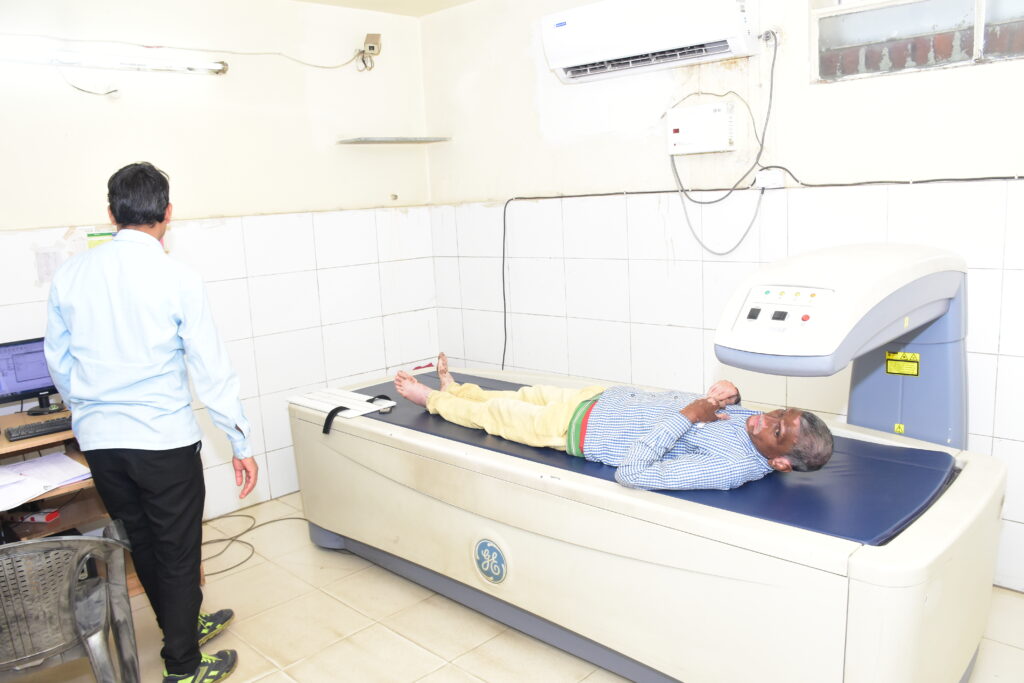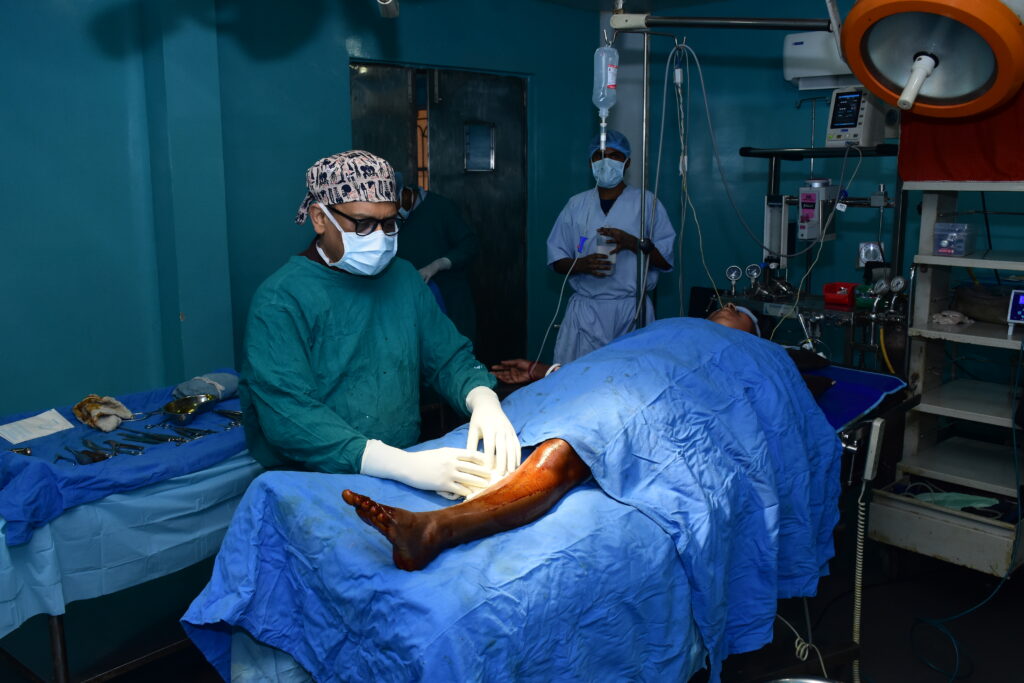Complex Trauma

Complex Trauma
Complex trauma in orthopedic cases refers to severe injuries that involve multiple fractures or injuries to different parts of the musculoskeletal system, often resulting from high-impact incidents such as motor vehicle accidents, falls from significant heights, or industrial accidents. These injuries not only pose significant physical challenges but also have profound psychological and emotional impacts on patients.
Characteristics of Complex Trauma in Orthopedics
Multiple Fractures:
- Patients may present with fractures in multiple bones, including long bones (like the femur and tibia), pelvis, spine, and upper extremities. These injuries often require comprehensive surgical intervention and prolonged rehabilitation.
Soft Tissue Damage:
- Alongside bone fractures, there is usually significant soft tissue damage involving muscles, ligaments, tendons, and skin. This can complicate the healing process and increase the risk of complications such as infection.
Neurovascular Injuries:
- Complex trauma often involves injuries to the nerves and blood vessels, which can lead to long-term functional deficits and require specialized surgical repair.
Psychological Impact:
- The trauma can result in significant psychological stress, manifesting as post-traumatic stress disorder (PTSD), anxiety, depression, and other mental health issues. The emotional burden can impact the recovery process and the patient’s overall well-being.
Management and Treatment Approaches
Initial Assessment and Stabilization:
- Primary Survey: Follows the ABCDE protocol (Airway, Breathing, Circulation, Disability, Exposure) to assess and stabilize life-threatening conditions.
- Secondary Survey: Comprehensive assessment of all injuries once the patient is stable.
Surgical Intervention:
- Emergency Surgery: Immediate surgeries may be needed to stabilize fractures, control bleeding, and repair critical soft tissue injuries.
- Definitive Surgery: Multiple staged procedures may be required to fully address complex fractures and restore function. This can include internal fixation with plates, screws, rods, and possibly external fixators.
Multidisciplinary Care:
- Involves collaboration among orthopedic surgeons, trauma surgeons, plastic surgeons, and vascular surgeons to manage the diverse aspects of the injuries.
- Rehabilitation Team: Physical therapists, occupational therapists, and pain management specialists are crucial for recovery.
- Involves collaboration among orthopedic surgeons, trauma surgeons, plastic surgeons, and vascular surgeons to manage the diverse aspects of the injuries.
Rehabilitation:
- Early Mobilization: Where possible, early mobilization is encouraged to prevent complications such as deep vein thrombosis (DVT) and promote quicker recovery.
- Long-Term Rehabilitation: A structured rehabilitation program tailored to the patient’s specific needs is essential for restoring function and independence. This often includes physical therapy, occupational therapy, and sometimes psychological support.
Psychological Support:
- Given the high incidence of PTSD and other psychological issues, integrating mental health support into the care plan is essential. This can include counseling, therapy, and support groups.
Challenges and Considerations
Infection Control:
- The risk of infection is high due to the extent of soft tissue damage and the use of surgical implants. Strict aseptic techniques and possibly prophylactic antibiotics are necessary.
Pain Management:
- Effective pain management strategies, including medication, nerve blocks, and non-pharmacological approaches, are crucial to help patients cope with the intense pain associated with complex trauma.
Functional Recovery:
- Achieving full functional recovery can be challenging and may take months to years. Setting realistic goals and providing ongoing support are key components of successful rehabilitation.
Conclusion
Complex trauma in orthopedic cases presents a significant challenge, requiring a multidisciplinary approach to manage the physical injuries and address the psychological impact. Through comprehensive assessment, timely surgical intervention, and dedicated rehabilitation, patients can achieve substantial recovery and improve their quality of life.



Our associate TPA
Akriti Clinic offers seamless TPA facilities, ensuring hassle-free insurance claim processing. Patients benefit from efficient and streamlined services, making their healthcare experience more convenient.






